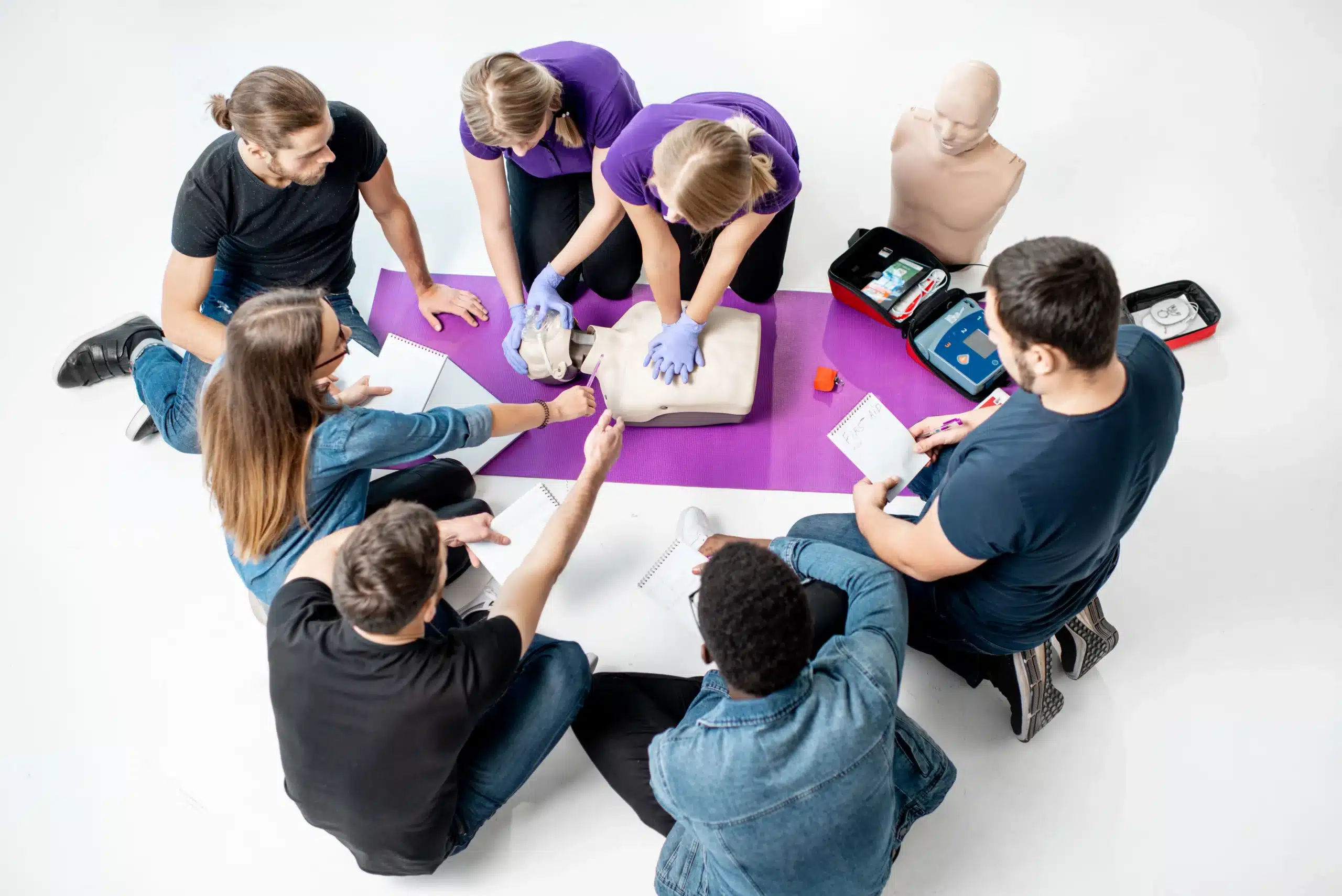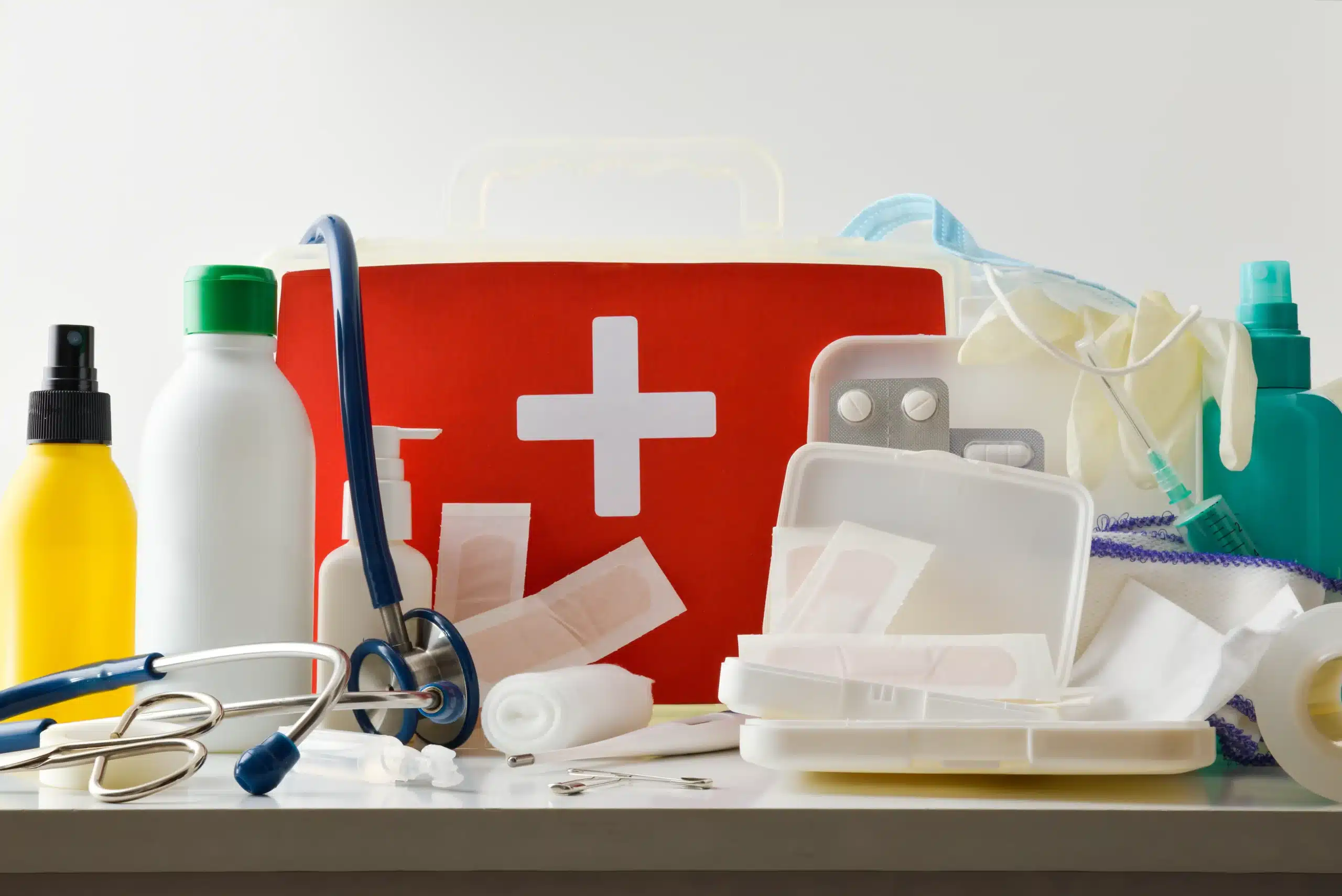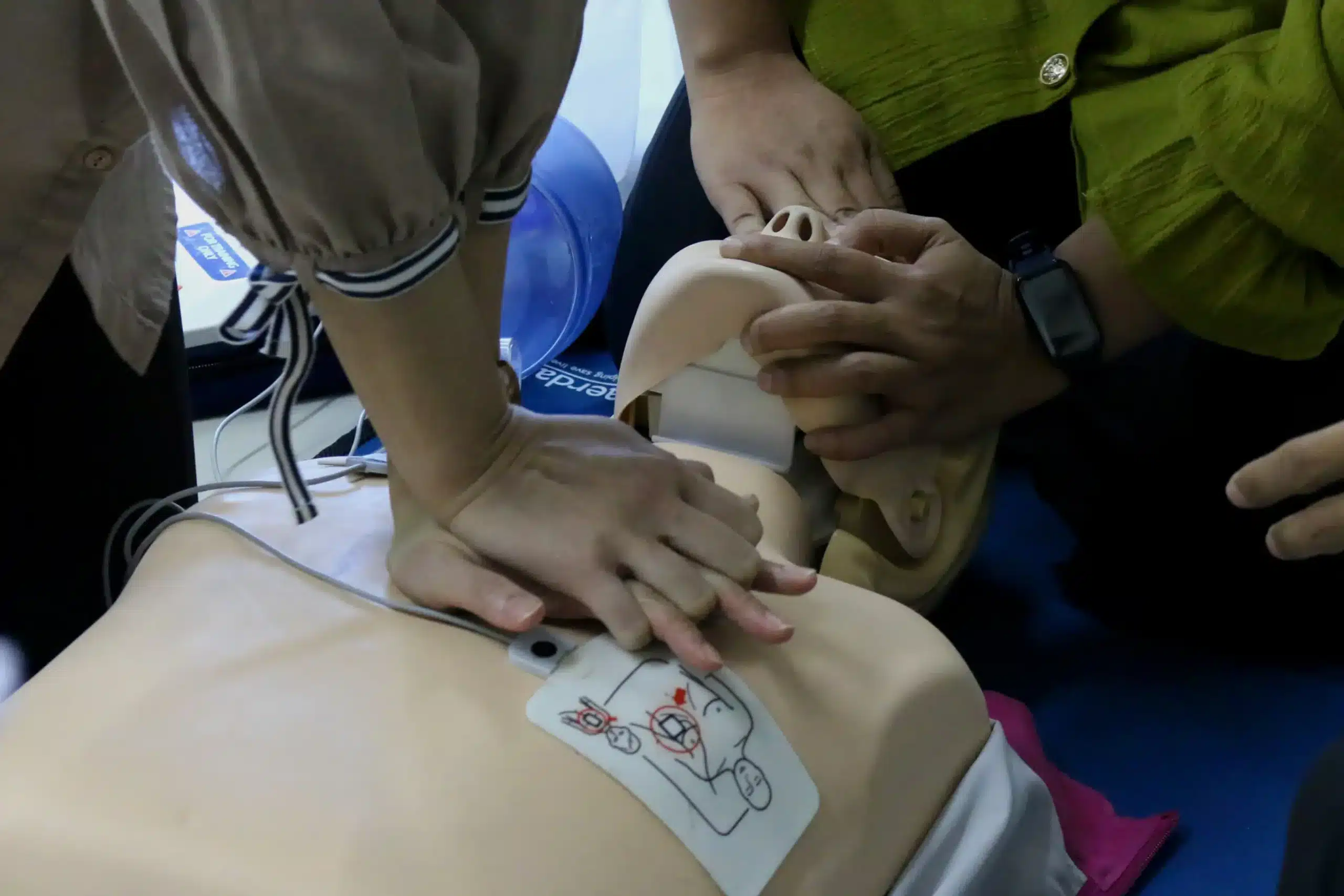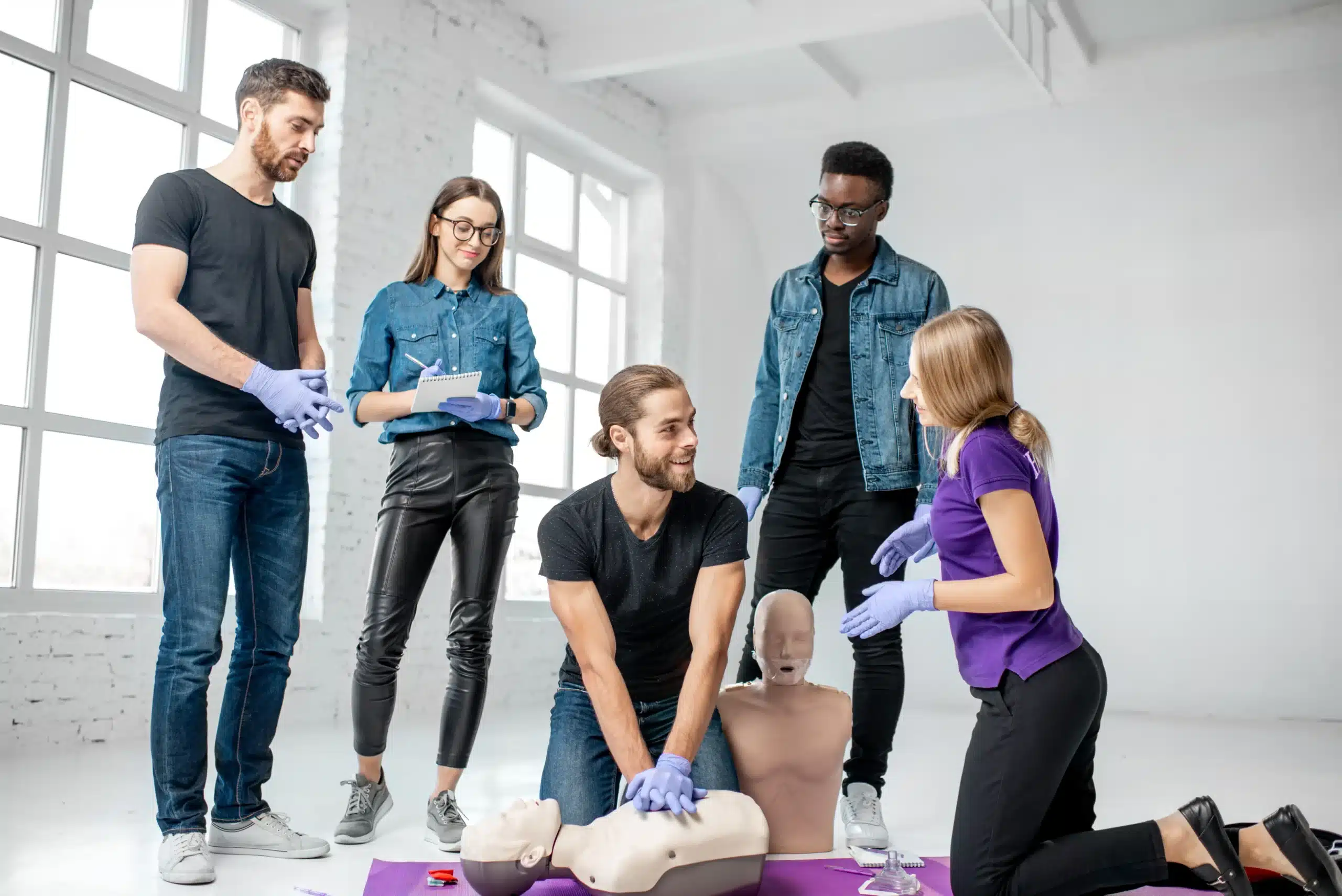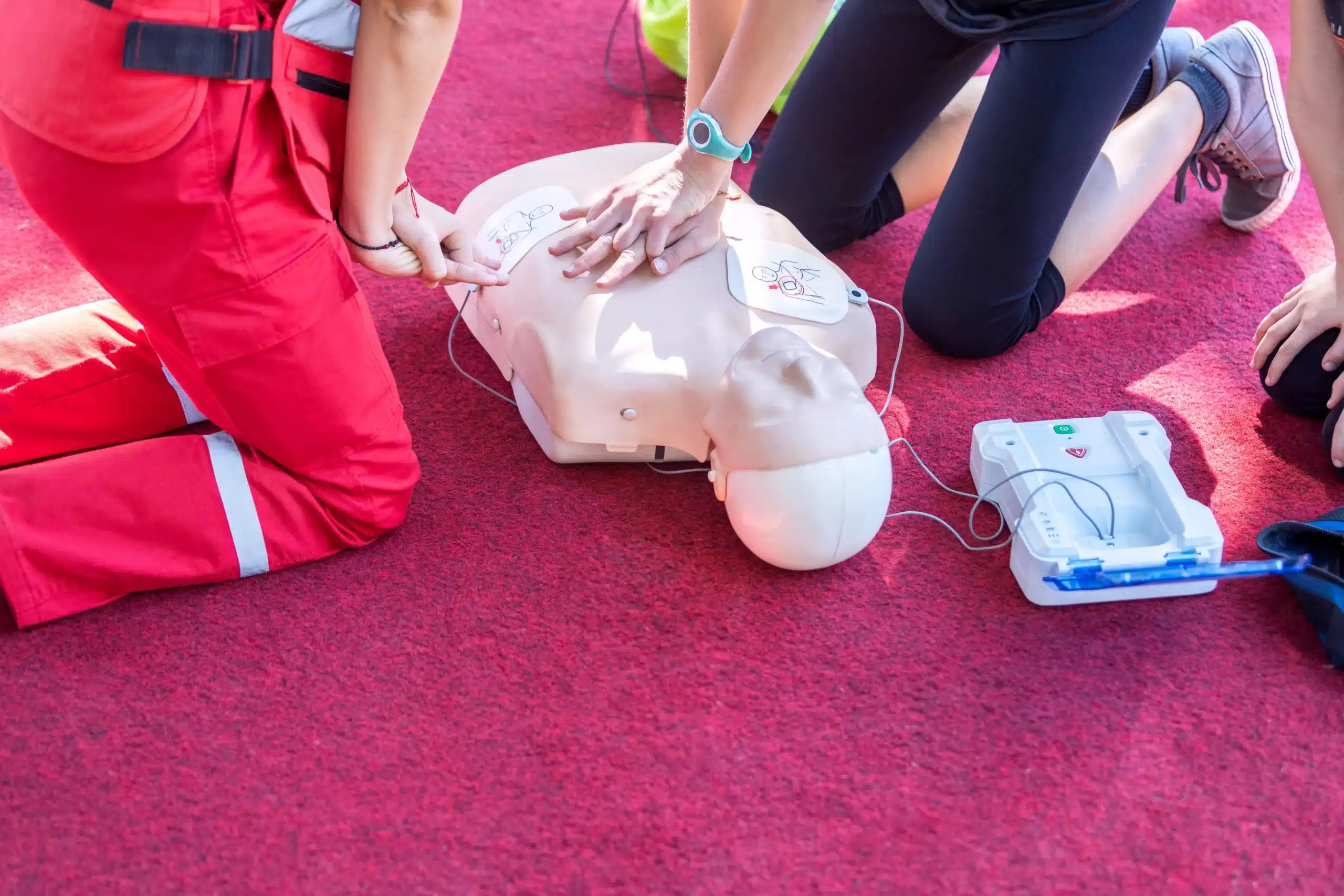Living in a vibrant city like San Francisco offers incredible experiences, but it’s also wise to be prepared for the unexpected. From bustling streets to crowded events, knowing how to handle medical emergencies can make all the difference. That’s where first-aid training in San Francisco comes in. Whether you’re a parent, a teacher, a healthcare worker, or simply someone who wants to feel more confident in their ability to help, first-aid training empowers you to respond effectively in critical situations. This guide explores the importance of first-aid, the types of courses available in San Francisco, and how to choose the right training for your needs. We’ll also discuss how staying up-to-date with your certification and skills can make you a valuable asset to your community.
Key Takeaways
- First-aid skills empower you to handle emergencies effectively. Knowing how to respond to injuries and sudden illnesses can make a real difference in various situations, especially in a busy city like San Francisco. Choose a course that fits your individual needs and preferred learning style.
- Selecting the right course involves careful consideration. Evaluate factors like the course content, instructor qualifications, and training format (online or in-person). Think about your current knowledge and the level of skill you want to achieve. Consider the specific first-aid challenges relevant to San Francisco’s urban environment.
- Staying up-to-date with your first-aid training is crucial. Regularly practicing your skills and taking refresher courses will help you maintain your proficiency. Keep informed about any changes in first-aid guidelines and be mindful of common first-aid myths. Participating in community preparedness programs can further enhance your skills and contribute to a safer community.
What is First-Aid Training in San Francisco?
First-aid training equips you with the skills to handle medical emergencies until professional help arrives. It empowers you to confidently respond to various situations, from minor injuries like cuts and burns to more serious incidents. In a bustling city like San Francisco, first-aid knowledge is invaluable for ensuring the safety of yourself and those around you.
What is First-Aid and Why is it Important?
First-aid is the immediate care you give someone experiencing a sudden illness or injury. It plays a crucial role in stabilizing the situation and potentially saving lives. Effective first-aid can prevent a condition from worsening and promote faster recovery. Think of it as a bridge between the incident and professional medical attention. In a dynamic environment like San Francisco, where accidents or unexpected health issues can occur, having first-aid skills is essential. Knowing how to control bleeding, perform CPR, or simply provide comfort can make a significant difference.
Types of First-Aid Courses
Several organizations offer a range of first-aid courses in San Francisco, catering to various needs and skill levels. You can find basic first-aid classes covering common injuries, as well as more advanced courses that include CPR and AED training. Some courses focus on specific settings, such as workplaces or wilderness environments. The American Red Cross, for example, provides a variety of first-aid and CPR classes, ensuring there’s a suitable course for everyone, from individuals and families to workplace teams. Safety Training Seminars offers a comprehensive selection of American Heart Association courses, including CPR, First-Aid, BLS, ACLS, and PALS. You can find everything from basic CPR certification to advanced life support training.
Benefits of First-Aid Certification
Becoming first-aid certified offers more than just practical skills. It instills confidence in your ability to respond effectively during emergencies. Through hands-on practice and realistic simulations, you’ll learn to assess situations, make informed decisions, and administer appropriate care. This training transforms you into a valuable asset, ready to assist others in need. First-aid certification also connects you to a broader community of prepared responders, strengthening overall public safety. It’s a powerful way to contribute to a more resilient and prepared community. Plus, having a first-aid certification can enhance your resume and open up new opportunities.
Top First-Aid Training Providers in San Francisco
Finding the right first-aid training can feel overwhelming with so many options. To simplify your search, we’ve compiled a list of reputable providers in San Francisco, highlighting what each offers. This list includes national organizations, local providers, and community programs, giving you a well-rounded view of available training.
Safety Training Seminars
Safety Training Seminars, a woman-owned American Heart Association (AHA) Training Center, offers various AHA courses, including CPR, First Aid, BLS, ACLS, and PALS. They emphasize hands-on learning and realistic simulations to build confidence in emergency situations. Learn more about their first-aid and CPR training.
American Red Cross
The American Red Cross is a well-known provider of first-aid and CPR training in San Francisco and nationwide. Their courses are developed by the Red Cross Scientific Advisory Council and often delivered in smaller class settings for more personalized instruction. You can find a class on their website.
American Heart Association
While the AHA doesn’t directly offer classes, they certify training centers like Revive CPR. Revive CPR provides blended learning options, combining online coursework with in-person skills practice led by certified AHA instructors. This can be a convenient way to fit training into a busy schedule. See more about their blended learning CPR and first-aid classes.
San Francisco Fire Department (NERT Program)
For those seeking free training, the San Francisco Fire Department’s Neighborhood Emergency Response Team (NERT) program is a valuable resource. While the SFFD doesn’t directly offer public CPR or first-aid classes, NERT provides this training as part of its broader disaster preparedness program. Visit the SFFD site for details on NERT.
St. John Ambulance
St. John Ambulance is another reputable organization offering a range of first-aid and CPR courses. They focus on practical skills and real-world scenarios to equip individuals with the knowledge and confidence to handle emergencies effectively. Explore their first-aid training and certification on their website.
Choose the Right First-Aid Course
Finding the right first-aid course is crucial for effective emergency preparedness. With various options available, consider your specific needs and learning preferences to make an informed decision. Safety Training Seminars offers a range of courses to meet diverse requirements, from basic to advanced certifications. Let’s explore the key factors to consider when selecting a first-aid course in San Francisco.
Assess Your Needs: Basic vs. Advanced Courses
First, determine your specific needs. Are you a parent seeking basic life support skills for your family? Or are you a healthcare professional requiring advanced cardiovascular life support certification? A basic first-aid course typically covers essential skills like CPR, treating minor injuries, and managing medical emergencies. Advanced courses delve into more complex scenarios, such as administering medications and using specialized equipment. Consider your current knowledge and the level of responsibility you anticipate in emergency situations. If you’re unsure which level is appropriate, reach out—we’re happy to help.
Course Content and Skills
Examine the course content and skills taught. Ensure the course aligns with nationally recognized guidelines, such as those provided by the American Heart Association. Hands-on practice and real-life simulations are essential for developing confidence and competence in applying first-aid techniques. Look for courses that offer ample opportunities to practice these skills in a safe and controlled environment. Our courses emphasize practical application to prepare you for real-world emergencies.
In-Person vs. Online Training
Decide whether in-person or online training suits your learning style. In-person classes provide direct interaction with instructors and peers, allowing for immediate feedback and personalized guidance. Online courses offer flexibility and convenience, enabling you to learn at your own pace and on your own schedule. Consider your learning preferences and the level of interaction you require. While online resources can be valuable supplements, in-person training provides the hands-on experience crucial for mastering essential first-aid skills. For those seeking in-person training in Northern California, our directory may be helpful.
Instructor Qualifications
The instructor’s qualifications are paramount. Choose courses led by certified instructors with extensive experience in first aid and emergency care. Experienced instructors can provide valuable insights and guidance, ensuring you receive high-quality training. Our instructors are highly qualified professionals dedicated to providing comprehensive and engaging instruction. We also offer a low price guarantee.
Urban First-Aid for San Francisco
San Francisco’s unique urban environment presents specific first-aid challenges. Consider courses that address these challenges, such as navigating crowded areas, dealing with traffic congestion, and responding to incidents in high-rise buildings. Understanding the specific needs of our city can enhance your preparedness and effectiveness in emergency situations. Our courses often incorporate scenarios relevant to San Francisco, ensuring you’re well-equipped to handle emergencies in our unique urban setting.
Cost and Accessibility of First-Aid Training
Finding the right first-aid training often comes down to practical matters like cost, scheduling, and location. Let’s break down what you need to know about accessing first-aid training in San Francisco.
First-Aid Course Pricing
First-aid course pricing in San Francisco varies quite a bit. Factors like the training provider, the type of course (basic or advanced), and the course format (online or in-person) all play a role. Expect to see a range of prices, so it’s worth comparing costs from different providers, including Safety Training Seminars.
Discounts and Free Training
While most courses have a fee, look for potential discounts. Some organizations offer discounts for students, seniors, or groups. Free CPR and first-aid training is sometimes available through community programs like the Neighborhood Emergency Response Team (NERT), often as part of a broader disaster preparedness course.
Convenient Locations and Schedules
Busy schedules shouldn’t prevent you from getting first-aid training. Many providers, including the American Red Cross, offer classes throughout San Francisco at various times. Look for weekend courses, evening options, or even intensive one-day programs to fit your needs.
Certification Requirements
Most basic first-aid certifications are valid for two years. Providers like the American Red Cross offer renewal courses to maintain your certification. Some providers allow recertification even if your current certification is close to expiring. Staying current with your certification ensures your skills are up-to-date and you’re prepared to respond effectively in an emergency.
Maintain Your First-Aid Skills and Certification
Once you’ve earned your first-aid certification, staying up-to-date is key. Regularly refreshing your knowledge and skills ensures you’re always prepared to help in an emergency. Here’s how to keep your first-aid skills sharp:
Renew Your Certification
First-aid certifications typically expire, often within two years. Check your certificate for the exact expiration date and plan to take a renewal course before it lapses. Some providers offer grace periods, allowing renewal within a short window after expiration. Safety Training Seminars offers a variety of renewal courses, including CPR and RQI classes, to help you maintain your qualifications. Check our low price guarantee.
Refresher Courses and Continuing Education
Even if your certification isn’t due for renewal, consider taking refresher courses. These can reinforce your skills and introduce you to any updated guidelines. The Red Cross offers convenient online refreshers to help you brush up on your knowledge between certifications. Staying informed about changes in first-aid practices is crucial for providing effective care. See our Northern California CPR directory for more resources.
Keep Your Skills Sharp
Consistent practice is the best way to maintain your first-aid skills. Consider volunteering for opportunities to use your training. Many community organizations welcome certified first-aid providers. You can also practice with friends or family, walking through different scenarios and techniques. This hands-on approach will build your confidence and ensure you’re ready to respond effectively in a real emergency.
First-Aid Training Misconceptions
Be aware of common first-aid myths that can actually do more harm than good. Misinformation can lead to improper care and potentially worsen injuries. Learn about common first-aid myths and ensure your knowledge is based on current, evidence-based practices. Reliable sources like the American Heart Association and the Red Cross offer accurate information to help you stay informed.
Community and Emergency Preparedness
Preparing for emergencies goes beyond individual first-aid training. Consider participating in community programs like the Neighborhood Emergency Response Team (NERT) program offered by the San Francisco Fire Department. NERT training provides comprehensive disaster preparedness education, including first aid and CPR, empowering you to assist your community during emergencies. Being prepared can make a significant difference in the safety and well-being of your neighborhood. Contact Safety Training Seminars through our contact us page to learn more about maintaining your certifications and staying prepared.
Related Articles
- First Aid Classes San Francisco: A Complete Guide – San Francisco Bay Area CPR Classes
- ACLS Certification in San Francisco: Your Complete Guide – San Francisco Bay Area CPR Classes
- CPR Training in Northern California: A Complete Guide – San Francisco Bay Area CPR Classes
- CPR Renewal in San Jose: A Complete Guide
- American Red Cross in Berkeley: Disaster Prep & Training – San Francisco Bay Area CPR Classes
Frequently Asked Questions
What’s the difference between basic first-aid and advanced first-aid training? Basic first-aid covers common injuries like cuts, burns, and sprains, along with CPR. Advanced training typically includes more in-depth instruction on handling more serious medical situations and may include administering medications or using specialized equipment. The right choice depends on your individual needs and the level of responsibility you anticipate in emergency situations.
How do I choose the right first-aid course in San Francisco? Consider your specific needs, such as whether you need basic life support skills or more advanced training. Look at the course content, instructor qualifications, and whether in-person or online learning better suits you. Also, think about cost, schedule, and location convenience. If you’re unsure which course is right for you, contact a training provider like Safety Training Seminars for guidance.
Are there free or discounted first-aid training options available? While most courses have a fee, some organizations offer discounts for students, seniors, or groups. Free training is sometimes available through community programs or as part of broader disaster preparedness courses. It’s always worth checking with various providers to explore available options.
How can I maintain my first-aid skills after getting certified? Regularly refresh your knowledge and skills to stay prepared. Renew your certification before it expires, consider taking refresher courses, and practice your skills whenever possible. Staying informed about changes in first-aid practices is also crucial for providing effective care.
What are some common misconceptions about first aid, and how can I avoid them? Many first-aid myths can lead to improper care. Be sure to get your information from reliable sources like the American Heart Association or the Red Cross. They offer accurate, evidence-based information to help you stay informed and provide effective assistance in emergencies.
